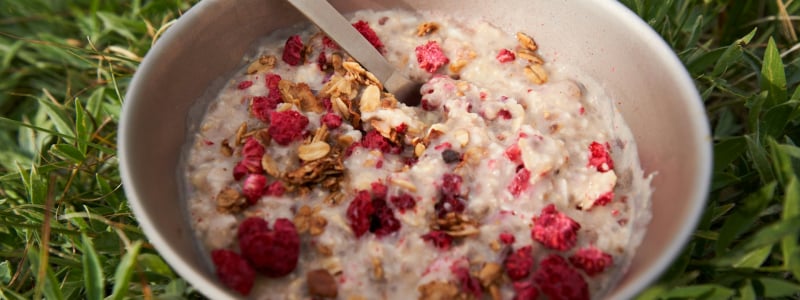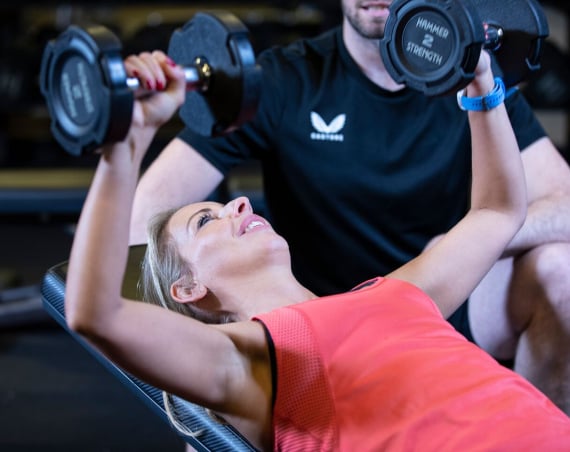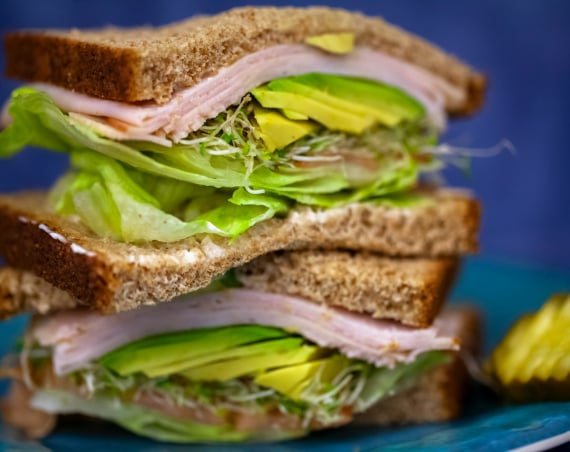When it comes to exercise, the food you eat before and after your workout is hugely important. Fuelling your body pre-workout helps you perform at your best. And eating the right food post-workout will help your body recover and ensure you reap the maximum benefits.
So what should you be eating before and after exercising? We’ve partnered with Optimum Nutrition to drill down into what you need to know in order to fuel your workouts.
The science behind it is pretty simple. “When you eat the calories contained in food, your body converts them into energy through metabolic processes. This energy is then used to power your muscles during a workout, and to repair and build tissue afterward,” says Dr Mark Evans, nutritionist at Optimum Nutrition.
“Without sufficient calorie intake, your body might struggle to perform these essential functions, leading to sub-optimal workout performance and recovery.”
But it’s not as simple as consuming any old snack; the type of food you choose matters, too. “Understanding the roles of macronutrients — carbohydrates, proteins, and fats — is essential for optimising your workout outcomes, whether you’re resistance training, HIIT training, doing yoga, or endurance training,” says Dr Evans.
Let’s explore some workout nutrition essentials.
What to eat before your workout
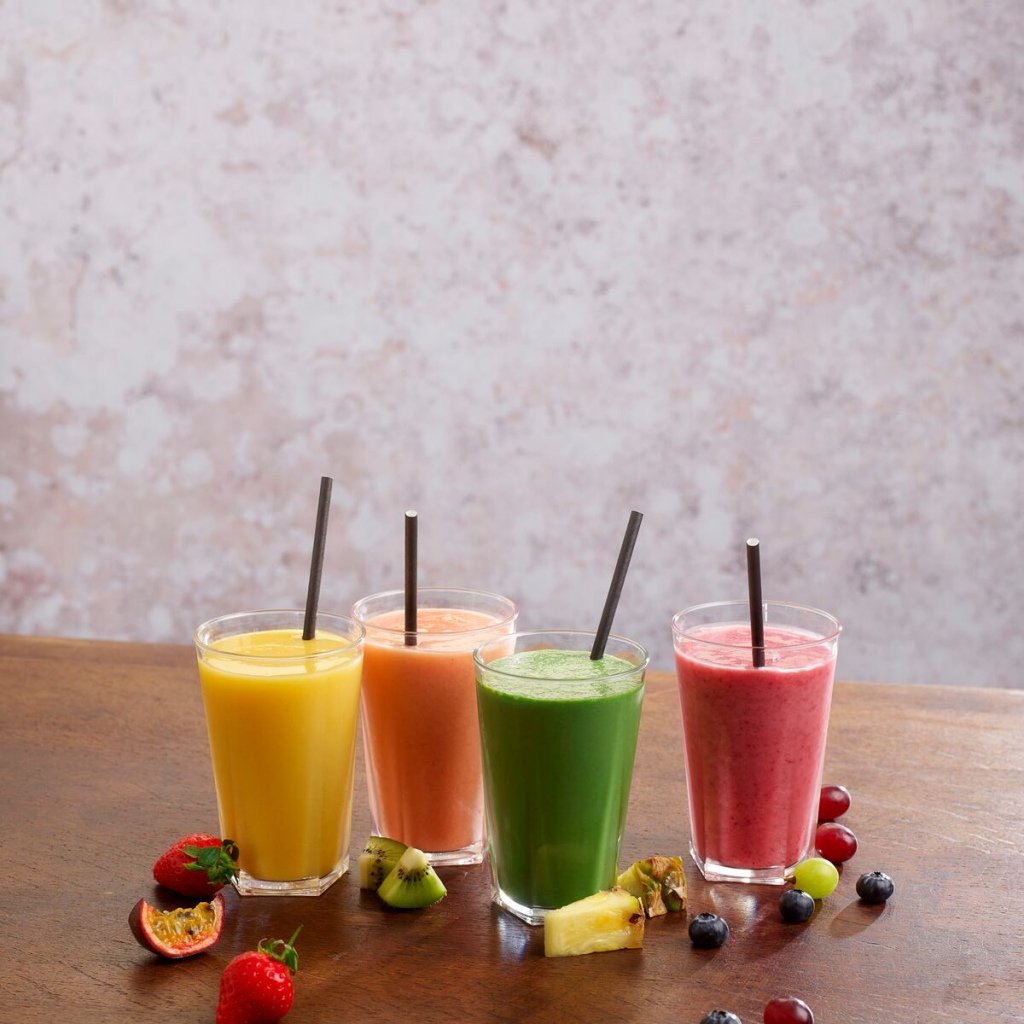
In order to perform to the best of your ability during your workout, you need to make sure your body is properly fuelled and ready to go. Before exercise, your main macronutrient should be carbohydrates.
“When you consume carbs, your body converts them into glucose, which is then stored in your muscles and liver as glycogen,” says Dr Evans. “Glycogen is a readily available energy reserve that fuels your muscles during workouts. Eating carbs before a workout ensures that your muscles have enough glycogen stores to sustain prolonged and intense exercise.
“Starting your workout with depleted glycogen stores can lead to early fatigue, making it difficult to complete your exercise routine effectively.”
Examples of good pre-workout nutrition
- A bowl of oatmeal topped with berries or a banana.
- Wholegrain toast with a drizzle of honey or a spread of nut butter.
- A fruit smoothie made with low-fat yogurt and a mix of fruits like berries, banana, and oats.
When should you eat before a workout?
“Eating a meal containing carbohydrate two to three hours before your workout ensures you have energy and allows for sufficient time for digestion,” says Dr Evans.
And if you’re having a snack rather than a full meal? “A quick snack, such as rice cakes with honey or a small bowl of cereal, will provide an extra boost 30-60 minutes prior,” says Dr Evans.
Which foods should you avoid before a workout?
“Everyone is different and you should keep note of what you eat around your workouts and how it made you feel,” says Dr Evans.
Foods that might affect your workout include:
Large meals. “Eating a large meal right before a workout can overwhelm leave you feeling sluggish, or nauseous,” says Dr Evans. “One common mistake people make is eating very large portions of pasta, noodles, chicken, or steak within 30-60 minutes of their workouts.”
High-fat foods. “High-fat foods take longer to digest, which may leave you feeling sluggish and uncomfortable during your workout,” says Dr Evans. “These include fatty cuts of meat like sausages, large servings of cheese, cream, chocolate, biscuits and cakes.”
High-fibre foods. “High-fibre foods, while great for overall health, may cause digestive issues such as gas, bloating, and cramping if consumed right before a workout,” says Dr Evans. “Avoid foods like beans, lentils, high fibre cereals, and certain vegetables like broccoli and cauliflower.”
Spicy foods. “Spicy foods can cause heartburn, indigestion, and gastrointestinal discomfort, which can be particularly bothersome during physical activity,” says Dr Evans. “This includes hot sauces, mustards, chili-based condiments, and spices including cayenne pepper.”
What to eat post-workout
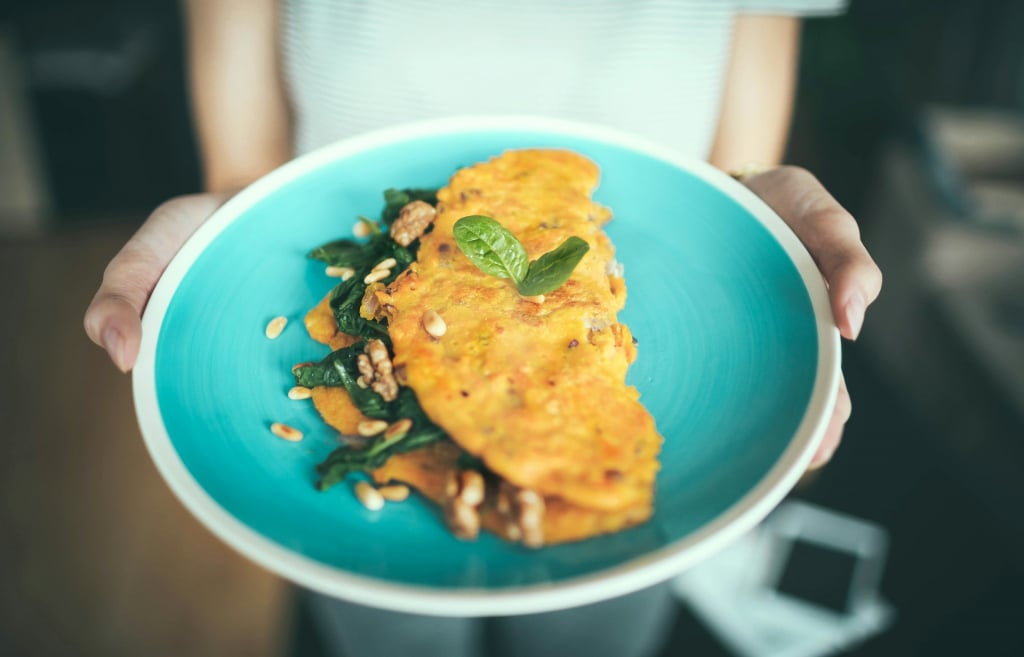
This is where another macronutrient comes to the fore: protein.
“Protein is essential for muscle repair, growth, and recovery,” explains Dr Evans. “While carbs are the primary energy source, having some protein before or after a workout will aid in muscle building efforts and recovering from your workouts.
“Muscle growth, also known as hypertrophy, occurs when the muscle fibres undergo damage and repair. This process is stimulated by resistance training exercises, such as weightlifting or bodyweight exercises, and protein helps with repair this damage. Aim for 20-30g of protein before or after your workouts to support your muscles.”
If you know you get hungry after a workout, it’s a good idea to plan ahead and have a snack on hand.
“Post-workout, consuming a snack containing protein followed by a balanced meal 1-2 hours later helps with muscle repair and glycogen replenishment,” says Dr Evans.
“However, don’t stress if you can’t get protein in immediately after your session, your body will use the protein just as well after a couple of hours once you get home and make dinner.”
Examples of high-protein foods
- Greek yogurt with a small portion of nuts: A serving of Greek yogurt mixed with a handful of almonds or walnuts.
- A three-egg omelette with vegetables like spinach and tomatoes.
- A protein shake, such as Optimum Nutrition 100% Gold Standard Whey, made with milk or water provides 24g of protein.
Fuel your workout or recovery – David Lloyd Clubs members enjoy an exclusive 20% discount with Optimum Nutrition. Simply navigate to the benefits section of the David Lloyd Clubs app to find out more.


